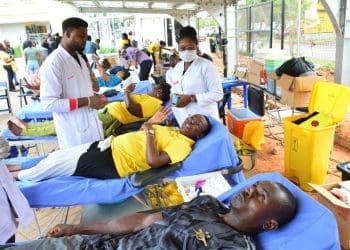A majority of the 13 banks that suffered capital shortfalls following Ghana’s Domestic Debt Exchange (DDE) have successfully met or exceeded their recapitalisation requirements by the end of 2024, according to the latest Country Report by the International Monetary Fund (IMF).
This recovery is attributed to robust profitability and strategic capital support from the Ghana Financial Stability Fund (GFSF).
The report noted that these banks are on track to restore the standard Capital Adequacy Ratio (CAR) of 13.0%—without regulatory reliefs—by the end of 2025.
5 Banks still struggling with capital deficits
However, the IMF cautioned that a handful of banks, including at least one state-owned institution, remain materially behind schedule.
These banks continue to face challenges arising from delayed shareholder capital injections, rising non-performing loans (NPLs), and postponed booking of credit impairments flagged in the Bank of Ghana’s (BoG) 2023 asset quality assessments.
“These banks are subject to intensified BoG monitoring and corrective measures to accelerate recapitalisation plans and meet the 13% CAR target by end-2025,” the IMF report stated.
World Bank-backed fund
The IMF also highlighted the potential of the World Bank-financed portion of the GFSF to support struggling banks—pending Parliamentary approval and implementation.
According to the report, banks that manage to raise sufficient capital on their own could qualify for access to the facility, helping them meet the capital adequacy thresholds within the required timeline.
BoG tightens supervision
Separately, the Bank of Ghana has stepped up monitoring and remedial action against five banks—comprising both private and state-owned institutions—that failed to meet recapitalisation targets as of December 2024.
These banks are now implementing updated recovery and recapitalisation plans approved by the central bank. These plans aim to address past governance and operational weaknesses, recent slippages in performance, and ensure full regulatory compliance by the end of 2025.
Restoring confidence in the banking sector
The recapitalisation efforts are part of broader reforms to restore confidence and resilience in Ghana’s financial system, which was severely strained by the government’s domestic debt restructuring in 2023.
With most banks now on stable footing and systemic risk reduced, authorities are optimistic about achieving full compliance across the sector within the next 12 to 18 months.
Nonetheless, the road to recovery remains uneven, and BoG’s supervisory vigilance will be critical in ensuring no bank is left behind as the industry rebuilds its capital buffers and credibility.













